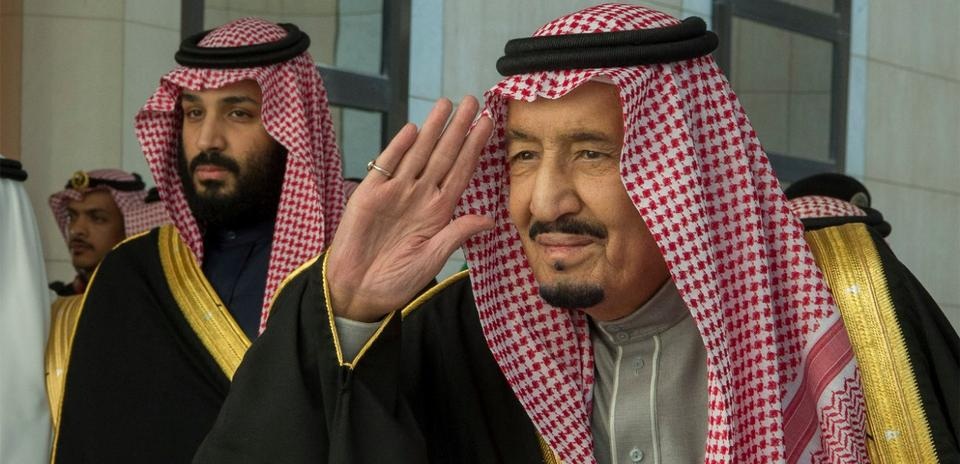Alwaght- Saudi Press Agency (SPA) on Sunday published King Salman’s call for emergency meetings by the Arab League and the (Persian) Gulf Cooperation Council in Mecca on May 30. The summit's agenda is discussing regional situation after the recent escalation, mainly after the attacks on the UAE and Saudi oil tankers in UAE’s Fujairah Port and the drone strikes by Yemeni forces on a Saudi oil pipeline carrying oil from the west to the east of the Arab kingdom. In addition to the stated discussion themes, a range of goals is sought behind the call for the summits.
Seeking another consensus over Yemen
Apparently, the four-year war led by Saudi Arabia against neighboring Yemen has run into an impasse. Riyadh neither wins the war nor has the courage to admit its defeat. On the one hand, the heinous crimes against the defenseless Yemeni people over the past few years have had no supporter but the UAE and the Trump administration. And on the other hand, only a name is left of the Arab military coalition formed by Saudi Arabia and a couple of Arab states in early 2015.
In the middle of the Saudi setbacks, the international pressures are mounting on Riyadh to stop the atrocities against the Yemenis amid an unprecedented humanitarian crisis caused by an all-out blockade and relentless bombing of the infrastructures. Add to this the Yemeni Ansarullah movement’s muscle-flexing before the Saudis over the past few days. The resistant movement last week declared drone strikes on the facilities belonging to the Saudi oil giant Aramco, indicating that Yemeni forces can penetrate the Saudi airspace and target the kingdom’s vital income sources. This gave the Saudi leaders the idea that with regard to the international community’s concerns about the escalating tensions in the Persian Gulf region and delicate calm they can garner further support for continuation of the anti-Yemeni campaign by possibly adding anti-Ansarullah material to the closing statements of the upcoming meetings and thus help alleviate the international pressures calling for them to stop their attacks and end the siege on Hudaydah Port, the only lifeline to Yemenis in the north, and implement Stockholm agreement reached in December 2018.
Mohammed Ali al-Houthi, the president of the Supreme Revolutionary Council of Yemen, in a Twitter post reacted to Riyadh’s call for summits. He wrote that: IS tell all free people in the holy month of Ramadan to save the Yemeni lives by refusing to attend a gatherings which does not prevent aggression against the Yemeni civilians and on the contrary back war and bloodshed in Yemen.
Iranophobia in the course to Arab NATO
The Saudi regime, Iran’s regional rival and an ideological enemy to the Islamic resistance discourse, has always played the role of an instrument for implementation of Iranophobic policies across the region and Muslim world as a service to the American and Israeli interests and in return for foreign support to keep the rule over the Arabian Peninsula. The Arab League has been an organization that over the past four decades shifted from its set goal of protecting the Arab states against foreign aggression as Saudi Arabia led a campaign of disidentification inside the bloc on the strength of Iranophobia.
Over the past few years, Saudi Arabia used the same demonization policy against the regional governments and countries which protect the Muslim interests in the face of Western and Israeli violations. A string of actions like blacklisting as a terrorist group Lebanese Hezbollah and Palestinian Hamas and also conspiracies to destabilize Iraq and Syria represent this policy.
As part of fundamental rivalry and hostility against some regional sides, the Saudi rulers, emboldened by Trump approach to cut the US costs and commitments in the region, have pursued foundation of the Arab version of NATO. Antagonizing Iran and intimidating the regional nations of Tehran is one step in a strategy towards Arab NATO establishment. The Saudi struggle to imply that Iran or the pro-Iranian regional forces should be blamed for the Fujairah Port attack was one among many Iranophobic measures.
Seeking to move out of Khashoggi case-caused international isolation
Yet another drive for the Saudi monarch to call for the summits in Mecca is an effort to rid the kingdom of the isolation on the international stage caused by the killing of Jamal Khashoggi, the outspoken critic of the Crown Prince Mohammed bin Salman who was killed by a Saudi hit squad at the Saudi consulate in Istanbul in early October last year. Following the revelation of the crime, the Turkish pursuit, and the reports released by Western intelligence agencies about the bin Salman hand in the assassination, Saudi Arabia faced heavy international pressure that drove it into isolation. Riyadh’s tried to weather the pressures by sham arrests and dismissal of the security officials named “accomplices” to the crime. The king even removed Foreign Minister Adel al-Jubeir but failed to persuade the world public that the top rulers were unaware of the killing plot. Now he seeks to end the isolation using such gatherings.



























